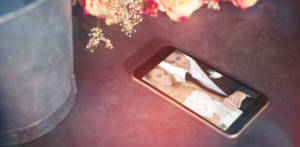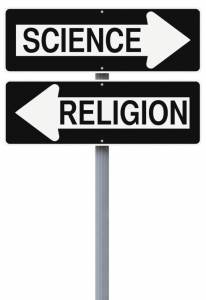Using Apps to Plan for Your Wedding
If you’re currently preparing for your wedding, you definitely want to explore what tech and apps might be able to help.
Technology has taken the human race to some interesting places. Only a few decades ago, the idea of communicating face-to-face with someone on the other side of the planet seemed impossible. Now, you can pull out your phone and video chat with anyone you wish, regardless of where the person lives. Life has been made a lot easier by the presence of modern technology, especially apps. This is as true of communications as it is of planning for a wedding. If you’re currently preparing for your wedding, you definitely want to explore what tech and apps might be able to help.
There are many exciting paths you can explore when it comes to using technology for the planning phase. Above all else, you definitely are going to want to take a look at which apps are best suited for the job. To help guide you through your journey, take a look at these suggestions for applications you can download to your smartphone or tablet. Finding the perfect apps might make your life a whole lot easier in regards to planning an event you adore.
C’mon Get Happy
When planning for a wedding, there are many different categories you need to keep in the forefront of your mind. You’re going to be looking over your budget, contacting vendors, trying on clothing, sampling food, and generally rushing from one place to another until you finally walk down that aisle. This means you are going to need help with keeping track of everything that is on your schedule so you do not miss out on anything important. A vast majority of the apps out on the market exist for this specific purpose.
Brides and grooms can always benefit from reminders and scheduling assistance. If you are a person who needs to have all of your information condensed into one simple place, an app like WeddingHappy could make sense for you. This app helps you to create a sensible schedule of all the various activities and appointments you have to take care of before your wedding arrives. Seeing the schedule on your phone can help to give you peace of mind and inform you of where you need to be at each step of the journey.
No More Paper
In the current day and age, there has been a big push to protect the environment. One way people have been approaching this is by discovering new and useful ways of conserving resources like water and trees. The production of paper, for example, tends to lean heavily on the planet’s reserve of trees. With a wedding, a lot of paper is involved. Even when you opt for invitations made from recycled materials, those invitations could wind up in the trash and add to the garbage piling up around the planet.
If you care about the environment and want to make life easier for your wedding, think about using an app like Joy. One of the best features of this application is the option of communicating with your guests via the app itself. The designers have made it easy for your guests to R.S.V.P. electronically, eliminating the need for paper invitations. When you want to help the planet while making your wedding planning a bit easier in the process, Joy could be the app you’ve been looking for.
Tomorrow Is Today
Planning for a wedding might be a stressful situation at times, but that doesn’t mean there isn’t help out there. Using technology to your advantage might completely change the way that you approach your plans. There are countless apps out there designed to help couples. Discover the perfect fit for your needs and give yourself a bit of peace of mind moving forward.
Faith With a Laser Focus The scientist who pioneered the ideas and applications that grew into laser technology eventually became infamous as a result of his statements linking faith and science. In a somewhat shocking article that he authored for an industry journal in 1966 titled “The Convergence of Science and Religion,” Nobel laureate Charles H. Townes compares religious faith with scientific inquiry. His effort to find common ground between the two human endeavors that most see as polar opposites was considered scandalous by many people from fields of both religion and science.
The scientist who pioneered the ideas and applications that grew into laser technology eventually became infamous as a result of his statements linking faith and science. In a somewhat shocking article that he authored for an industry journal in 1966 titled “The Convergence of Science and Religion,” Nobel laureate Charles H. Townes compares religious faith with scientific inquiry. His effort to find common ground between the two human endeavors that most see as polar opposites was considered scandalous by many people from fields of both religion and science.
Learning From the War Years
During World War II, Townes worked with Bell Laboratories on radar bomb systems development. He earned a Master in Physics from Duke University and a doctorate at the California Institute of Technology. Townes went on to be a leading physicist of the post-war years in America, which saw a boom in research growing out of wartime efforts.
He later applied earlier research on microwaves used in radar studies to focus on spectroscopy, the science of dispersing the component colors of light. The inspiration for the concept that developed into laser technology in the decade following the war originally came to him in a burst of inspiration, he later recalled. He likened the moment of creative inspiration of the new scientific concept to a moment of religious revelation.
Like a Religious Revelation
Throughout the rest of his long life, he remembered the moment when he jotted down the concept for what would become the laser on a piece of paper as he sat on a park bench, waiting for a restaurant to open for breakfast on the morning of April 26, 1951. The inspiration struck him like a bolt out of the heavens, he recalled.
In the early 1950s, he and his students at Colombia University developed the idea, pioneering what was called the maser (microwave amplification by stimulated emission of radiation). After his original ideas had been developed and applied widely in industrial uses from metal cutting to medicine and surgery and beyond, Townes said, “I knew there would be many applications for the laser, but it never occurred to me that we’d get such power from it.”
Recognized With a Shared Nobel Prize in Physics
In 1964 Townes shared the Nobel Prize in Physics with two Russian scientists who had done much of the practical development of his theories to develop the laser. A laser operates by regulating the way energized atoms release light particles known as photons. Most astute scientific observers at the time perceived that the new scientific advancement would have diverse applications once it was further refined and developed, but at the time few foresaw the range of uses that the technology would lead to—from eye surgery to dentistry, tattoo removal to playing music, and movies on compact discs.
A Life of Faith
A devout lifetime member of the United Church of Christ, Townes sparked controversy with his comparisons of science and religion, as well as for his ongoing willingness to openly discuss his deep faith. He firmly believed that, while the two pursuits may seem different on the surface, “religious belief and scientific inquiry have many similarities, and they should interact and enlighten each other.”
In 2005 he won the Templeton Prize for Progress Toward Research or Discoveries About Spiritual Realities. In accepting the prize, he said, “many people don’t realize that science basically involves assumptions and faith, but nothing is absolutely proved. Wonderful things in both science and religion come from our efforts based on observations, thoughtful assumptions, faith and logic.”
While typical views hold that religion is best excluded from public affairs ranging from politics to science, some wise individuals see the role of faith within these and other endeavors. Many people of faith use their belief in greater forces beyond human abilities to guide their efforts to live a positive life of achievement by realizing and benefiting from the very real connections between all people on this earth.
Confessions App for Your Phone
Seeking confession is never easy to do, morally or physically. When you feel you have sinned and need to get that off your chest and do your penance, the last thing you want to do is add the stress of trying to find time to go to church. Now, there is good news. Confession: A Roman Catholic App is a new phone app that has recently been sanctioned by the Catholic Church. While the confessions app stops short of offering absolution (you’ll still need to go to church for that), there are many things that this app can offer any Catholic.
Makes Confessing More Accessible
Confession is a basic part of the Catholic faith, but it has never been particularly fun. Sitting in a dark box confessing your sins to a priest you’ve probably known for most of your life isn’t anyone’s idea of a great time. The confessions app allows Catholics the freedom to confess wherever they are. It allows you to get what is bothering you off your chest in an interesting and stress-free way, so that you will be more willing to confess in church.
Helps You Examine Your Life
While the app doesn’t offer absolution, it will help you to discover what the real sins in your life are. It will lead you on what it calls an “Examination of Conscience” that allows you to take a look at your life and see what caused you to sin. The app gives you inventive suggestions on things to do in your everyday life to be better.
Privacy
The first concern people have with the app is privacy. The app is customized just for you and password protected so that your sins are never seen by anyone else. Once you confess, your words are cleared away and gone forever.
The new Confessions app is an incredibly helpful tool to engage your faith in a technological way. By confessing your sins on the app, you are taking a deeper look at their impact in your life and preparing yourself before you go to church.




